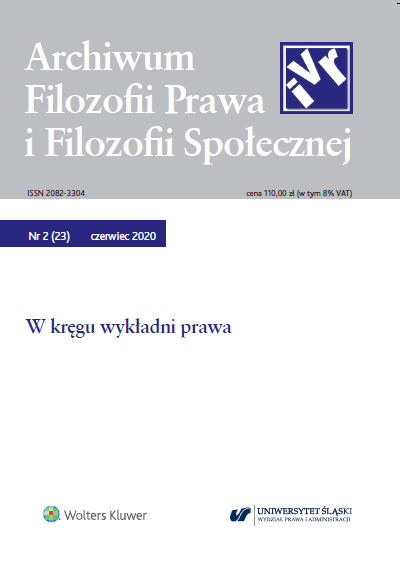Zasada nullum crimen sine lege jako źródło poszukiwania językowej granicy wykładni prawa karnego?
The Principle of Nullum Crimen Sine Lege as a Source for Search for the Limits of Linguistic Interpretation in Criminal Law?
Author(s): Sławomir TkaczSubject(s): Law, Constitution, Jurisprudence, Philosophy of Law
Published by: Stowarzyszenie Filozofii Prawa i Filozofii Społecznej – Sekcja Polska IVR
Keywords: nullum crimen sine lege; limits of legal interpretation; legal interpretation; criminal law; theory of law
Summary/Abstract: The principle of nullum crimen sine lege is nowadays recognized as the standard of the rule of law. This doctrine prohibits the use of analogies and extensive interpretation of legal provisions to the disadvantage of the perpetrator. The starting point of these considerations is that texts of criminal provisions vary in nature. Therefore a question should be asked about the nature of these prohibitions in relation to various provisions. A separate problem is to distinguish inference by analogy from legal interpretation. The presented considerations are aimed at answering the question whether the nullum crimen sine lege principle allows determining the linguistic limits for the interpretation of criminal law. The analyses are illustrated by examples from the field of criminal case law. The article aims to provide reflection on the acceptable limits of interpretation of criminal law, if such limits can be defined. The considerations end with general conclusions.
Journal: Archiwum Filozofii Prawa i Filozofii Społecznej
- Issue Year: 23/2020
- Issue No: 2
- Page Range: 81-95
- Page Count: 15
- Language: Polish

